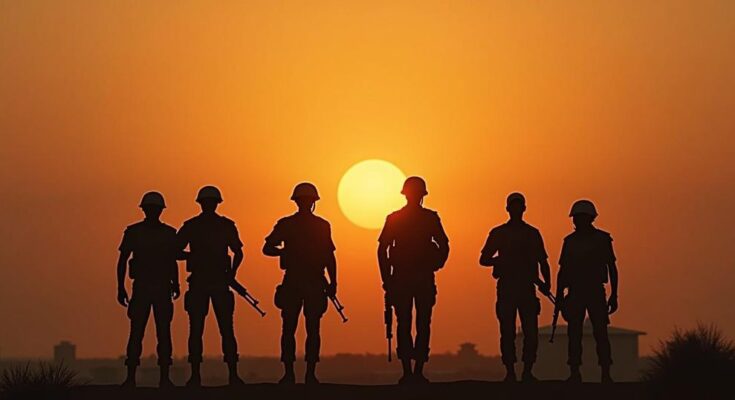The Sudanese army has denied UAE claims of bombing its ambassador’s residence in Khartoum, calling the accusations unfounded. The UAE intends to protest internationally, citing escalating tensions as Sudan accuses the UAE of supporting RSF. Kuwait and Jordan have condemned the attack, highlighting the need for diplomatic protection amid ongoing conflict.
On September 30, 2024, the Sudanese army publicly rejected the allegations put forth by the United Arab Emirates (UAE) regarding a purported attack on the residence of its ambassador in Khartoum. This denial came in response to the UAE Ministry of Foreign Affairs’ claims that Sudanese forces executed aerial bombings against the ambassador’s residence, prompting the UAE to announce its intention to file a formal protest with the United Nations and other regional bodies. The accusations signify a noticeable escalation in tensions between the two nations, particularly as Sudanese military officials have accused the UAE of exacerbating the ongoing conflict by allegedly extending military support to the Rapid Support Forces (RSF). The Sudanese Armed Forces categorically condemned the UAE’s claims, asserting that they do not target diplomatic facilities or utilize such sites for military operations. A spokesperson for the army specifically stated that the blame for any acts against diplomatic facilities rests with what he termed the “Terrorist militia of the Daglo rebels,” who are purportedly supported by unspecified countries. Furthermore, the spokesperson underlined that the Sudanese military’s operations are confined to locations where the militia is active, framing it as their sovereign right to defend the state against insurgent threats. Following a surge in hostilities that commenced in April 2024, most diplomatic missions have vacated Khartoum, relocating to Port Sudan in eastern Sudan. Sudanese authorities have asserted that the RSF has engaged in looting and assaults on foreign diplomatic missions without facing substantial condemnation from the international community. In light of these developments, both Kuwait and Jordan have voiced their condemnation regarding the attack on the UAE ambassador’s residence. Kuwait’s Ministry of Foreign Affairs emphasized the necessity of upholding the sanctity of diplomatic missions, in line with the 1961 Vienna Convention on Diplomatic Relations, while Jordan’s Foreign Ministry, represented by spokesperson Sufian Qudah, labeled the incident as a serious infringement on international law and diplomatic norms.
The recent accusation by the United Arab Emirates against Sudan implicates significant geopolitical tensions within the region. The conflict in Sudan has escalated since April 2024, resulting in severe humanitarian impacts and a disregard for international diplomatic protocols. The allegations highlight concerns regarding the protection of diplomatic missions amidst ongoing military actions and instability. The UAE’s accusations also reflect deepening divisions and the perceived involvement of foreign nations in Sudanese conflicts, particularly concerning the Rapid Support Forces, an armed group involved in key conflicts within the country. The statements from Kuwait and Jordan reveal a broader regional concern about the assault on diplomatic integrity amid increasing violence. The context of the conflict and state relations is crucial for understanding the complexities of these accusations.
The Sudanese army’s denial of the UAE’s accusations of bombing its ambassador’s residence underscores the rising tensions and complexities of the conflict in Sudan. The Sudanese military emphasizes its commitment to avoiding harm to diplomatic establishments and holding the RSF responsible for acts of violence. Regional responses from Kuwait and Jordan further illuminate the gravity of the situation and the urgent need for adherence to international diplomatic protections. As diplomatic missions continue to withdraw from Khartoum due to the escalating violence, the ramifications of these tensions may have substantial implications for regional stability and international relations.
Original Source: sudantribune.com




